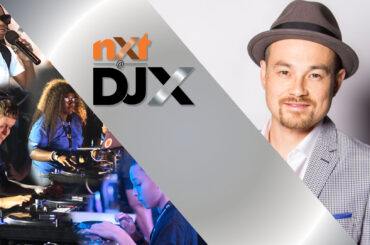With DJ Nu-Mark and Cut Chemist working the decks, Jurassic 5 was a seminal part of hip hop’s underground movement in the ’90s. But since the six-piece outfit split in 2007, both the music market and the DJ scene have drastically changed—dance music now outpaces hip-hop and its turntablists have diminished in popularity.
But recently, after a nearly seven-year hiatus, J5 members have put their differences aside and joined ranks once more for the Word of Mouth 20th Reunion Tour. So when the tour hit Detroit, we spoke with Nu-Mark (aka Mark Potsic), who gave us some insight on the current state of the hip-hop DJ and how electronic music has impacted the scene.
DJ Times: In your view, how has the hip-hop scene changed over the years?
Nu-Mark: Wow, it’s changed completely. It doesn’t even resemble what it used to be, in my opinion. On the art side, I don’t think it matters much to be dope anymore, or to be good. I know that’s kind of a negative thing to say, but I mean it with sincerity. I think being dope only counts for 20- to 40-percent [now]. It’s more about shock value and how beautiful you are onstage, your image. I just find it hard to believe that a major label would sign someone like Janis Joplin today, or like Stevie Wonder, because they’re so concerned with how they look and their sex appeal.
DJ Times: What’s the effect, then?
Nu-Mark: It’s bothersome to me because there’s been really good music put out that just hasn’t seen the light of day because labels are only interested in 360 deals. I also think with the advancements of YouTube and the Internet, attention spans have shrunken quite drastically, so if you don’t hit people in the first minute and your songs [in whole] aren’t three minutes or less, you’re not going to captivate an audience. Your live show has to be impeccable now because that’s really the main source of income for musicians these days, whereas back in the day we’d have some residuals.
DJ Times: What about the musical side?
Nu-Mark: On the musical side, the producer has gotten bigger and there have been a lot of advancements in technology that are really positive. The beats sound really full now, like courageous and contagious, whereas lyrics have become really dumbed down and ignorant in a lot of ways. I’m spoiled because I grew up on Kool G Rap, Rakim, Big Daddy Kane, and Chuck D—and to go from that to what I’m hearing lyrically now is just a drastic drop off. I own 35,000 records; I know what’s happened. I’ve seen what’s happened. I don’t know if people are purposely trying to dumb down their lyrics to cater to the masses, or if hip-hop has become a little bit lazier.
DJ Times: Does a hip-hop DJ have to work harder nowadays?
Nu-Mark: This is the hardest I’ve ever worked in my life. And I come from a house-party background—I’ve carried my own amps, speakers, turntables and seven crates of records to every party I’ve done, and would average two-to-three gigs every weekend while I was in high school. I know what it is to work, but I’ve worked harder in the last five years than I ever have in my entire life. There just isn’t the market there used to be for urban, hip-hop music.
DJ Times: How has electronic music’s recent boom affected the market for hip-hop DJs?
Nu-Mark: Electronic music has swallowed up all the genres and mass appeal for the DJ. You could take the lowest-paid electronic DJ that’s somewhat known, making $25,000 to $50,000 a night, to the highest paid non-electronic DJ—like someone in my genre, hip-hop—making maybe $7,000 to $15,000 on a good day, $20,000 on a great day. Electronic DJs are making upwards of $750,000 a night, so there is a huge difference in income and popularity [between electronic and non-electronic DJs].
DJ Times: Quite a difference…
Nu-Mark: It has changed quite a bit since [December 2002, when] Cut Chemist and I were on the cover of DJ Times! But don’t get it twisted: hip-hop DJs are the illest in the world. They’ve got it the hardest… the blends, the dipping of the genres, incorporating what has been sampled into the hip-hop songs, the fluctuating tempos in just four bars—only a skilled DJ can handle that.







